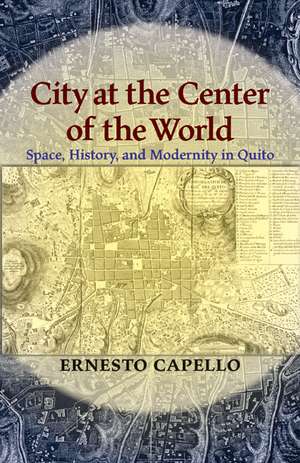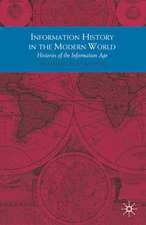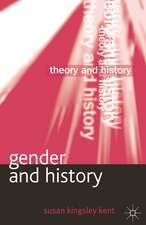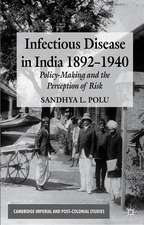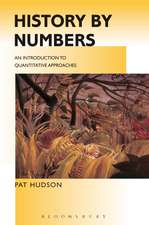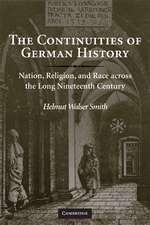City at the Center of the World: Space, History, and Modernity in Quito: Pitt Latin American Series
Autor Ernesto Capelloen Limba Engleză Paperback – 3 noi 2011
In the seventeenth century, local Jesuits and Franciscans imagined Quito as the “new Rome.” It was the site of miracles and home of saintly inhabitants, the origin of crusades into the surrounding wilderness, and the purveyor of civilization to the entire region. By the early twentieth century, elites envisioned the city as the heart of a modern, advanced society—poised at the physical and metaphysical centers of the world.
In this original cultural history, Ernesto Capello analyzes the formation of memory, myth, and modernity through the eyes of Quito’s diverse populations. By employing Mikhail Bakhtin’s concept of chronotopes, Capello views the configuration of time and space in narratives that defined Quito’s identity and its place in the world. He explores the proliferation of these imaginings in architecture, museums, monuments, tourism, art, urban planning, literature, religion, indigenous rights, and politics. To Capello, these tropes began to crystallize at the end of the nineteenth century, serving as a tool for distinct groups who laid claim to history for economic or political gain during the upheavals of modernism.
As Capello reveals, Quito’s society and its stories mutually constituted each other. In the process of both destroying and renewing elements of the past, each chronotope fed and perpetuated itself. Modern Quito thus emerged at the crux of Hispanism and Liberalism, as an independent global society struggling to keep the memory of its colonial and indigenous roots alive.
In this original cultural history, Ernesto Capello analyzes the formation of memory, myth, and modernity through the eyes of Quito’s diverse populations. By employing Mikhail Bakhtin’s concept of chronotopes, Capello views the configuration of time and space in narratives that defined Quito’s identity and its place in the world. He explores the proliferation of these imaginings in architecture, museums, monuments, tourism, art, urban planning, literature, religion, indigenous rights, and politics. To Capello, these tropes began to crystallize at the end of the nineteenth century, serving as a tool for distinct groups who laid claim to history for economic or political gain during the upheavals of modernism.
As Capello reveals, Quito’s society and its stories mutually constituted each other. In the process of both destroying and renewing elements of the past, each chronotope fed and perpetuated itself. Modern Quito thus emerged at the crux of Hispanism and Liberalism, as an independent global society struggling to keep the memory of its colonial and indigenous roots alive.
Din seria Pitt Latin American Series
-
 Preț: 381.57 lei
Preț: 381.57 lei -
 Preț: 401.52 lei
Preț: 401.52 lei -
 Preț: 376.96 lei
Preț: 376.96 lei -
 Preț: 383.46 lei
Preț: 383.46 lei -
 Preț: 345.96 lei
Preț: 345.96 lei -
 Preț: 342.26 lei
Preț: 342.26 lei -
 Preț: 380.10 lei
Preț: 380.10 lei -
 Preț: 305.69 lei
Preț: 305.69 lei -
 Preț: 346.86 lei
Preț: 346.86 lei -
 Preț: 346.86 lei
Preț: 346.86 lei -
 Preț: 330.30 lei
Preț: 330.30 lei -
 Preț: 347.80 lei
Preț: 347.80 lei -
 Preț: 343.18 lei
Preț: 343.18 lei -
 Preț: 334.31 lei
Preț: 334.31 lei -
 Preț: 310.31 lei
Preț: 310.31 lei -
 Preț: 350.01 lei
Preț: 350.01 lei -
 Preț: 408.89 lei
Preț: 408.89 lei -
 Preț: 430.21 lei
Preț: 430.21 lei -
 Preț: 374.77 lei
Preț: 374.77 lei -
 Preț: 365.04 lei
Preț: 365.04 lei - 17%
 Preț: 384.06 lei
Preț: 384.06 lei -
 Preț: 421.48 lei
Preț: 421.48 lei -
 Preț: 343.18 lei
Preț: 343.18 lei -
 Preț: 380.10 lei
Preț: 380.10 lei -
 Preț: 342.63 lei
Preț: 342.63 lei -
 Preț: 416.29 lei
Preț: 416.29 lei -
 Preț: 381.78 lei
Preț: 381.78 lei -
 Preț: 345.96 lei
Preț: 345.96 lei -
 Preț: 376.96 lei
Preț: 376.96 lei -
 Preț: 340.95 lei
Preț: 340.95 lei -
 Preț: 387.14 lei
Preț: 387.14 lei -
 Preț: 342.26 lei
Preț: 342.26 lei -
 Preț: 346.86 lei
Preț: 346.86 lei -
 Preț: 414.46 lei
Preț: 414.46 lei -
 Preț: 343.18 lei
Preț: 343.18 lei -
 Preț: 483.89 lei
Preț: 483.89 lei -
 Preț: 317.69 lei
Preț: 317.69 lei -
 Preț: 373.46 lei
Preț: 373.46 lei -
 Preț: 348.74 lei
Preț: 348.74 lei -
 Preț: 316.79 lei
Preț: 316.79 lei -
 Preț: 134.11 lei
Preț: 134.11 lei -
 Preț: 338.54 lei
Preț: 338.54 lei -
 Preț: 336.70 lei
Preț: 336.70 lei -
 Preț: 407.97 lei
Preț: 407.97 lei -
 Preț: 338.37 lei
Preț: 338.37 lei -
 Preț: 338.54 lei
Preț: 338.54 lei -
 Preț: 376.04 lei
Preț: 376.04 lei -
 Preț: 331.86 lei
Preț: 331.86 lei -
 Preț: 313.07 lei
Preț: 313.07 lei -
 Preț: 383.46 lei
Preț: 383.46 lei
Preț: 375.12 lei
Nou
Puncte Express: 563
Preț estimativ în valută:
71.79€ • 75.92$ • 59.88£
71.79€ • 75.92$ • 59.88£
Carte tipărită la comandă
Livrare economică 31 decembrie 24 - 14 ianuarie 25
Preluare comenzi: 021 569.72.76
Specificații
ISBN-13: 9780822961666
ISBN-10: 0822961660
Pagini: 312
Ilustrații: 19 b&w
Dimensiuni: 152 x 235 x 23 mm
Greutate: 0.45 kg
Ediția:1
Editura: University of Pittsburgh Press
Colecția University of Pittsburgh Press
Seria Pitt Latin American Series
ISBN-10: 0822961660
Pagini: 312
Ilustrații: 19 b&w
Dimensiuni: 152 x 235 x 23 mm
Greutate: 0.45 kg
Ediția:1
Editura: University of Pittsburgh Press
Colecția University of Pittsburgh Press
Seria Pitt Latin American Series
Recenzii
“City at the Center of the World explores the emergence of Quito, Ecuador, as a modern national capital. Capello’s elegantly written and well-organized study examines strategic moments in the city’s history in relation to their colonial past and regional contexts as city elites and indigenous communities worked to reshape ‘traditional’ historical discourses and city spaces to craft a modern capital to their respective advantage.”
—Mark Overmyer-Velázquez, University of Connecticut
—Mark Overmyer-Velázquez, University of Connecticut
“In this highly original book, Capello examines the city of Quito on both sides of the twentieth century. He reveals an evolving city and a city in crisis, a former colonial capital torn between alleged Hispanic traditions and long-suppressed indigenous aspirations, uncertain of its survival, yet proud of its past glory. Marshaling an astonishing array of written, visual, and architectonic sources, Capello traces Quito’s painful transition to Liberal-inspired modernity. This book will no doubt inspire new approaches to urban studies in the Americas and beyond.”
—Kris Lane, Tulane University
—Kris Lane, Tulane University
“Rests on a robust archive. It draws together diverse elements of history-making—including cartography, urban design, architecture, literature, and photography—to reveal the complex socio-political patterns that sustained Quito’s national position over time.”
—A Contra corriente
—A Contra corriente
“A thoughtfully researched cultural history that explores master narratives, or chronotopes, constructed by Quiteno elite from the 1880s through the 1940s, a period of rising modernization and consolidation of the nation state. Capello uses a wide range of sources, drawing on archival documents, visual images, literature, and architecture. “
—American Historical Review
—American Historical Review
”What is most striking about the book is how very well the author identifies and situates the social actors he is studying. . . . Full of insights that will fascinate and enrich the work of scholars of Ecuador, but it will also be of interest to those engaged with urban history in Latin America and elsewhere, as well as those exploring memory, history, and the politics of the past. It also will challenge scholars at all stages of their careers to consider new methodological paths to illuminate politics, imaginaries, perceptions, and experience in Latin American urban spaces.”
—Hispanic American Historical Review
—Hispanic American Historical Review
Notă biografică
Ernesto Capello is assistant professor of history at Macalester College.
Descriere
In this original cultural history, Ernesto Capello analyzes the formation of memory, myth, and modernity through the eyes of Quito’s diverse populations. By employing Mikhail Bakhtin’s concept of chronotopes, Capello views the configuration of time and space in narratives that defined Quito’s identity and its place in the world. To Capello, these tropes began to crystallize at the end of the nineteenth century, serving as a tool for distinct groups who laid claim to history for economic or political gain during the upheavals of modernism.
